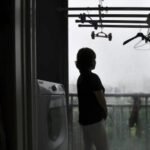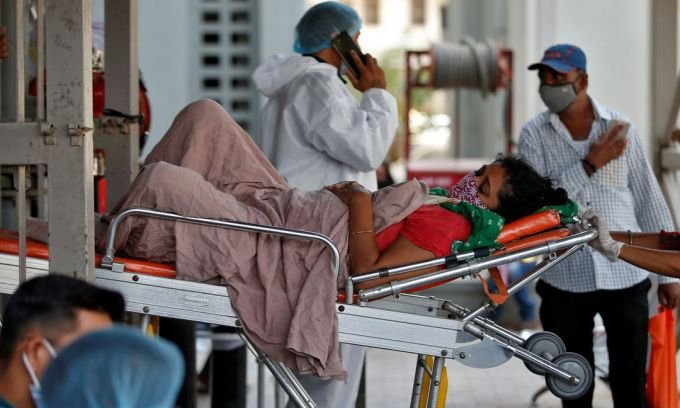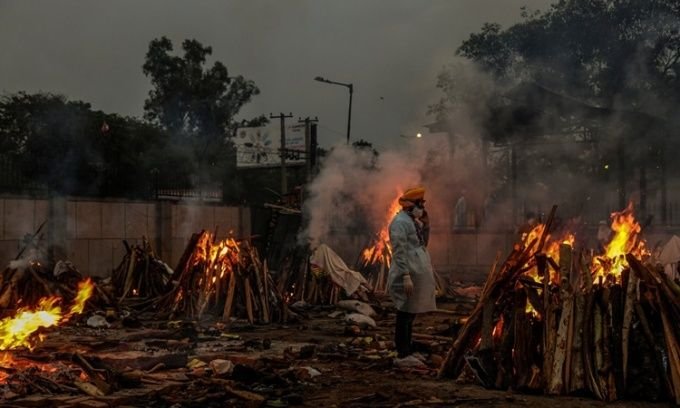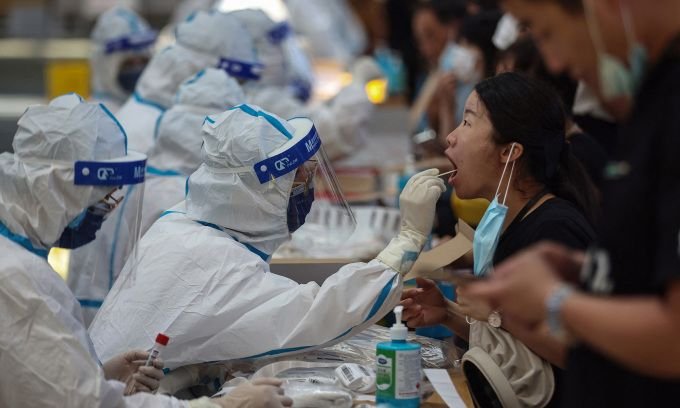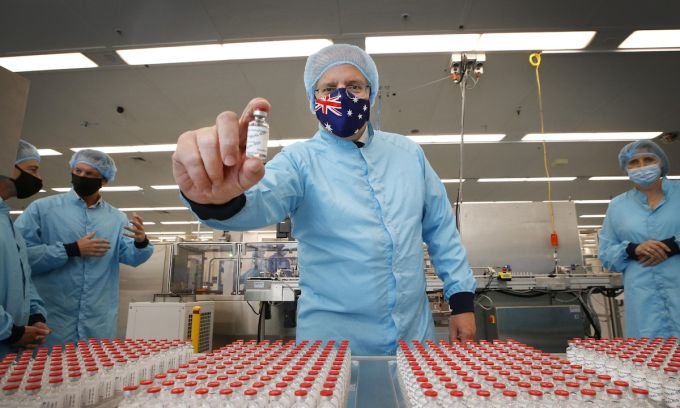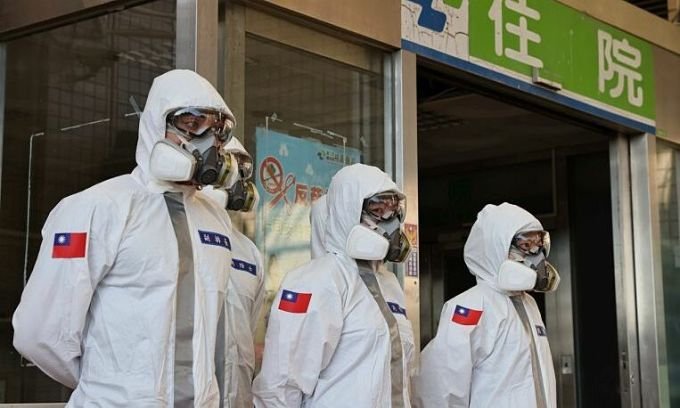On April 22, Bagla, 58 years old, a science reporter in the capital New Delhi, tested positive for nCoV.
At the Indian Institute of Medical Sciences, doctors did blood tests and injected him with steroids.
Before being discharged from the hospital after 8 days of treatment, Balga was shown by the doctor a lung scan of a male patient the same age as him, infected with Covid-19, diabetic but not vaccinated.
`There is a clear difference. The doctor said that if I had not been vaccinated, I could have died in the intensive care unit. Timely and complete vaccination saved my life,` he said.
A Covid-19 patient was admitted to a hospital in Ahmedabad, India on April 19.
Although India has only fully vaccinated about 2.5% of its 1.3 billion people, cases of `vaccine avoidance`, meaning being infected with nCoV two weeks after receiving two doses, appear to be increasing,
Scientists took Balga’s biological samples to sequence the gene of the virus he was infected with.
It is undeniable that vaccines are effective in preventing Covid-19.
Of the 95 million fully vaccinated people in the US as of April 26, more than 9,000 people are still infected with nCoV, according to the US Centers for Disease Control and Prevention (CDC).
But this data in India is still patchy due to limited collection sources.
Official data shows that 2-4 people out of 10,000 vaccinated people in India are infected with nCoV.
The data from the hospital is also quite chaotic.
60% of doctors in intensive care units at Lok Nayak Jai Prakash Narayan Hospital (LNJP), the largest hospital in New Delhi, have been infected despite full vaccination, but no one has been hospitalized, Farah Husain said.
Another study at Fortis C-DOC, a hospital in New Delhi, showed that 15 out of 113 healthcare workers were infected with nCoV two weeks after receiving the second vaccine shot.
`We are seeing many cases of healthcare workers infected with nCoV after receiving the vaccine. But most of them have mild symptoms. The vaccine has helped prevent the risk of severe infection,` Dr. Anoop Misra, co-author of the study.
The results of another study in Kerala state showed that two out of six healthcare workers infected with nCoV despite receiving two doses of vaccine were infected with a variant capable of evading the body’s immune system.
Scientists say India needs more data to examine vaccine avoidance rates in the population and learn how vaccines work.
`The question people are asking the most is whether a large number of people are reinfected after vaccination,` said Dr. Shahid Jameel, a virologist.

People lined up waiting to get vaccinated at a hospital in New Delhi earlier this month.
The bigger worry is that India’s daily vaccination rate is plunging and herd immunity is still a long way off.
Experts are concerned that an uncontrolled second outbreak will create conditions for the virus to mutate more and be able to escape the vaccine’s protective layer more easily.
Scientists say vaccines remain an effective way to protect against the risk of severe illness and hospitalization.
`Vaccines are effective. But they don’t allow you to be reckless and let down your guard. You still have to be very cautious,` Balga said.
Thanh Tam (According to BBC)




